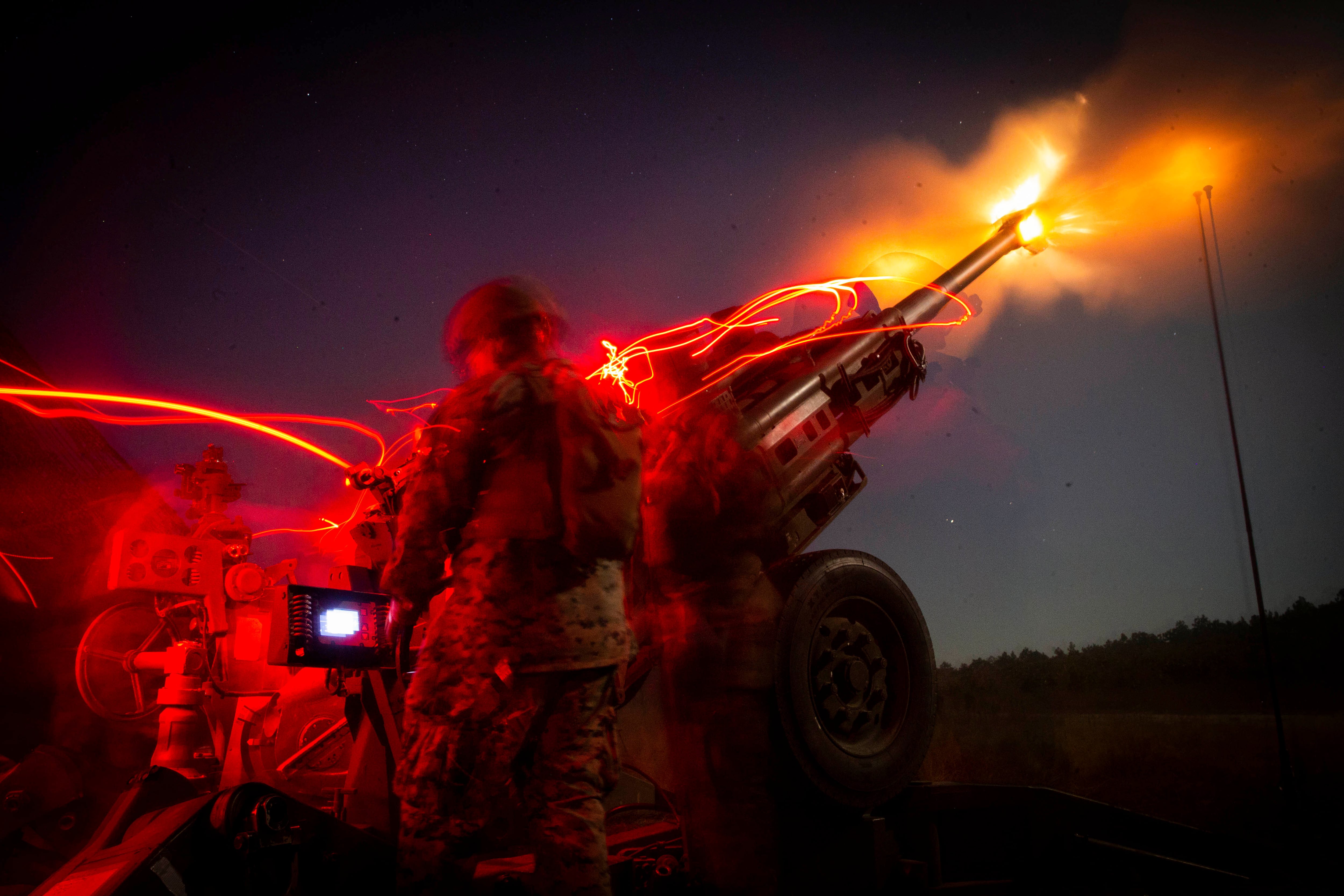WASHINGTON — A group of international defense chiefs convened by U.S. Defense Secretary Lloyd Austin to coordinate military aid for Ukraine is likely to expand when it meets for the second time on Monday.
The Ukraine Contact Group, which included 40 member countries at the inaugural gathering at Ramstein Air Base in Germany on April 26, has since attracted more interest. U.S. defense officials declined to give a tally as the responses were still rolling in. The meeting will be held by video teleconference.
“There are some countries that have shown an interest in participating that weren’t in the first meeting,” Pentagon Press Secretary John Kirby said Friday. “There’s not a cap on it, and we would love to have as many countries as possible.
“In its first iteration, you had countries from the Middle East, you had countries from the Indo-Pacific,” he said. “It wasn’t just Europe, and it certainly wasn’t just NATO. There was a true global community there of countries that were interested in what’s going on in Ukraine.”
British Defense Secretary Ben Wallace, co-organizer of the push, is expected to make an opening statement along with Austin and a Ukrainian delegate, according to a British official, who spoke on condition of anonymity. As of Friday, 18 countries were preparing announcements on providing new kit, the official said.
The group’s purpose is to address Ukraine’s near- and long-term needs, Austin has said. High on the agenda Monday will be Kyiv’s immediate requirements, as Ukrainian forces prepare for grinding combat in the country’s east.
“It’s an important new way for nations of goodwill to intensify their efforts to help Ukraine better defend itself, both for today’s urgent needs and for the long haul,” Austin said in May 11 congressional testimony. “Our most urgent goal continues to be sending the Ukrainians the capabilities they need most right now, as the war has shifted to the Donbass and to the south. The coming weeks will be critical.”
RELATED

At the last meeting, Germany agreed to provide 50 Cheetah air-defense vehicles to Ukraine. The vehicles are slated to be delivered in July, German broadcaster ZDF reported. The British government also agreed to provide Ukraine with anti-aircraft capabilities, along with Canada’s offer of eight armored vehicles.
Austin will hold a call with Ukraine’s defense minister, Oleksii Reznikov, to discuss its military requirements in advance of the contact group meeting, Kirby said. As with the first meeting, Reznikov will offer an update on the fighting and relay Ukraine’s needs, after which the member countries will discuss how they can meet them.
Speaking at the EU Foreign Affairs Council on Wednesday, Reznikov warned that Russia is preparing for a long war against his country.
“There are many indications of Russia preparing for a long-term military operation. The war is entering a protracted phase,” he said. “We can already see how the Russian occupiers are beginning engineering and fortification works in the Kherson [and] Zaporizhya [regions].”
With Ukraine’s civilian population under attack, Reznikov said Ukraine wants to acquire the weapons it needs to end the conflict as soon as possible — “and in the right quantities.”
“We need tanks, armored vehicles, long-range fire weapons systems” as well as multiple launch rocket systems, heavy artillery, aircraft, missiles, he said. “We strive to save the lives of our people.”
Western defense officials have previously denied the supply of weapon types that could expand the war beyond Ukraine’s borders. On Friday, Kirby said the Pentagon can meet Ukraine’s needs and avoid escalating the war.
“Nobody wants to see it escalate beyond the incredibly brutal violence that is already visited upon the Ukrainian people,” Kirby said.
Joe Gould was the senior Pentagon reporter for Defense News, covering the intersection of national security policy, politics and the defense industry. He had previously served as Congress reporter.
Sebastian Sprenger is associate editor for Europe at Defense News, reporting on the state of the defense market in the region, and on U.S.-Europe cooperation and multi-national investments in defense and global security. Previously he served as managing editor for Defense News. He is based in Cologne, Germany.







